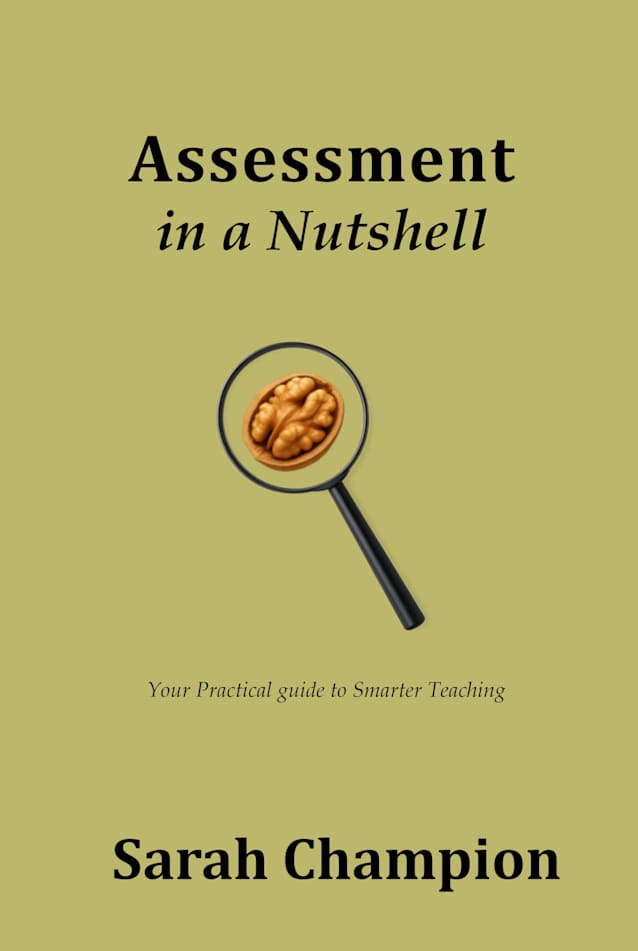From the series:
Teaching in a Nutshell Collection
Assessment in a Nutshell (Teaching in a Nutshell)
About
Assessment in a Nutshell
This guide is for educators who want to reclaim their time and make assessment a meaningful tool for student growth rather than just a system for generating grades. It provides simple, sustainable strategies for understanding what students know and giving them actionable feedback efficiently. The book’s central message is to shift the focus from grading everything to assessing what matters, which frees you from the belief that every student task must be formally graded.
Key topics include:
- Assessment on a Spectrum: Distinguish between formative assessment (low-stakes, frequent “quick checks” to guide instruction) and summative assessment (high-stakes, infrequent “big tests” to measure final learning).
- The Assessment Cycle: Learn how assessment is a continuous loop of teaching, assessing, analyzing data, and adjusting instruction to ensure your teaching is always responsive to student needs.
- The Formative Assessment Toolkit: Discover a variety of “in-the-moment” strategies beyond just asking “Any questions?” that require every student to show what they know, such as exit tickets, mini-whiteboards, and structured discussions.
- Assessment-Driven Differentiation: Understand how to use the data you collect from assessments to make targeted adjustments and provide different levels of support or challenge to learners.
- Making Sense of the Data: Learn a quick, five-minute “3-Pile Sort” method to analyze formative data, identify common misconceptions, and plan your next lesson with precision.
- The Power of the Rubric: Use simple, clear rubrics to make grading faster and more consistent while providing students with a transparent roadmap for what success looks like.
- Feedback That Fixes: Discover how to provide feedback that is specific, actionable, and kind, focusing on one or two things a student can do to improve, rather than overwhelming them with every error.
- A Smart Policy for Retakes: Learn to implement a clear, fair retake policy that fosters a growth mindset by requiring students to do work to re-learn the material before they can get a second chance.
- Grading Hacks That Work: Find out how to strategically grade less by using completion grades, spot-checking assignments, and leveraging peer and self-assessment to reclaim your time.
